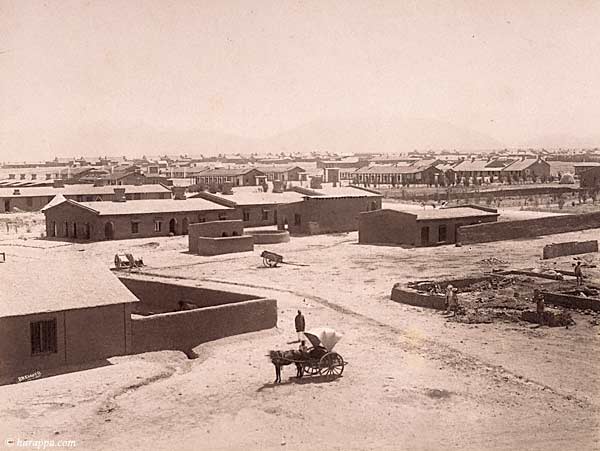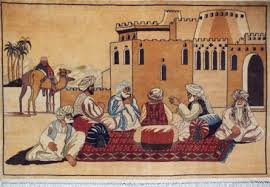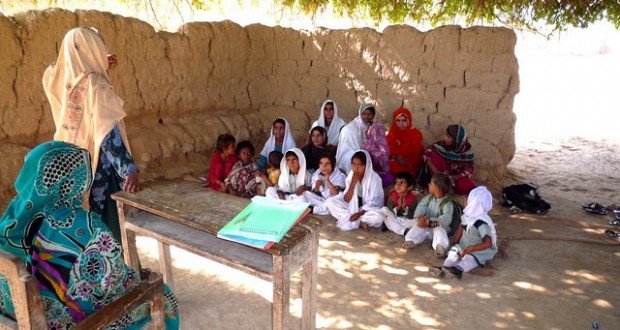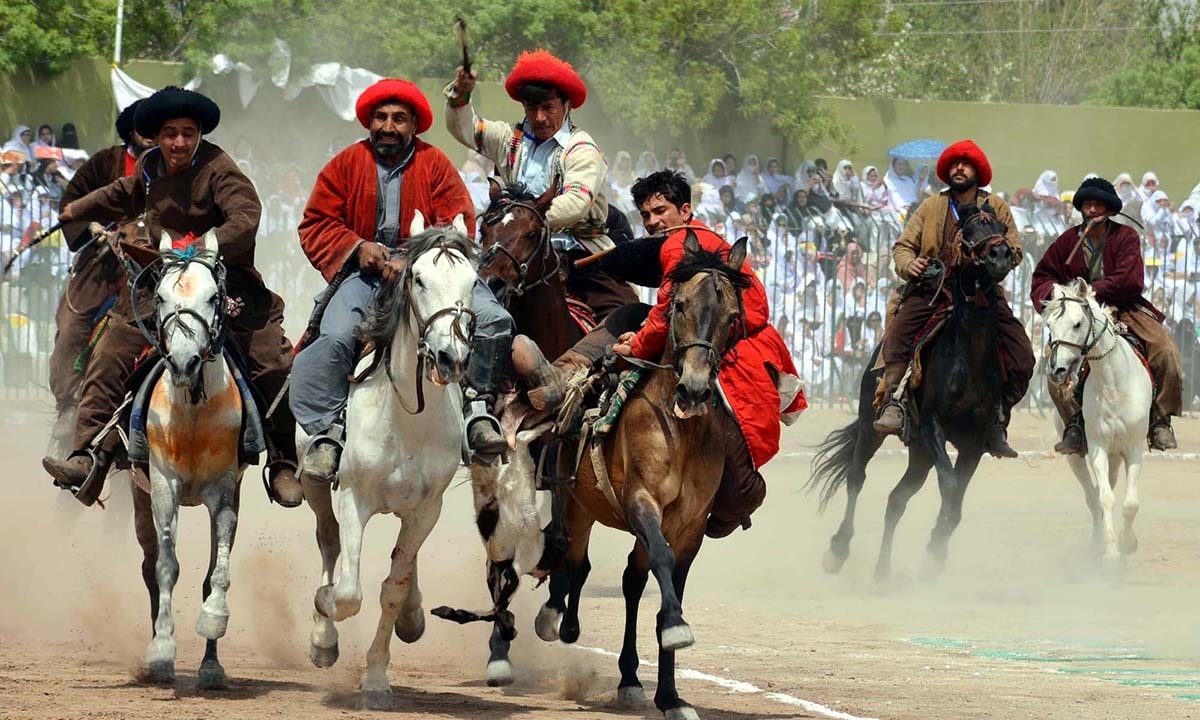Quetta is the provincial capital of Balochistan, Pakistan and 9th largest city of Pakistan. The city is known as the fruit garden of Pakistan, due to the numerous fruit orchards in and around it, and the large variety of fruits and dry fruits produced there.[citation needed] The city was also known as Little Paris in the past due to its beauty and geographical location. The immediate area has long been one of pastures and mountains, with varied plants and animals relative to the dry plains to the west. Quetta is at an average elevation of 1,680 meters (5,510 feet) above sea level, making it Pakistan's only high-altitude major city. The population of the city is estimated to be approximately two million. Located in north western Balochistan near the Pakistan-Afghanistan border, Quetta is a trade and communication centre between the two countries. The city lies on the Bolan Pass route which was once the only gateway from Central Asia to South Asia. Quetta played an important role militarily for the Pakistani Armed Forces in the intermittent Afghanistan conflict.
history
It is believed that the earliest inhabitants of the city were the Pashtun Kasi Tribe.
The first important event in the history of Quetta is from the 11th century when it was captured by Amir Mahmud
of Ghazni during his invasions of South Asia.

Quetta cantonment during the British Raj era (c. 1889)
Culuture
Sindhi, Seraiki, Brahui, Persian, Pashto and Arabic are also spoken depending on area of residence.
The Baloch or Baluch are a people who live mainly in the Balochistan region of the southeastern-most edge
of the Iranian plateau in Pakistan, Iran, and Afghanistan, as well as in the Arabian Peninsula.

Culutre
Saidpur village is supposedly named after Said Khan, the son of Sultan Sarang Khan. The 500-year-old village was converted into the a place of Hindu worship by a Mughal commander, Raja Man Singh. He constructed a number of small ponds: Rama kunda, Sita kunda, Lakshaman kunda, and Hanuman kunda. The region is home to many Hindu temples that are preserved, showing the history of Hindu civilisation and architecture in the region.. The shrine of Sufi mystic Pir Meher Ali Shah is located at Golra Sharif, which has a rich cultural heritage of the pre-Islamic period. Archaeological remains of the Buddhist era can also still be found in the region. The shrine of Bari Imam was built by Mughal Emperor Aurangzeb. Thousands of devotees from across Pakistan attend the annual Urs of Bari Imam. The event is one of the largest religious gatherings in Islamabad. In 2004, the Urs was attended by more than 1.2 million people. The Lok Virsa Museum in Islamabad preserves a wide variety of expressions of folk and traditional cultural legacy of Pakistan. It is located near the Shakarparian hills and boasts a large display of embroidered costumes, jewellery, musical instruments, woodwork, utensils and folkloristic objects from the region and other parts of Pakistan.
Education
quetta boasts the literacy rate in Pakistan at 58%, and has some of the most advanced educational
institutes in the country. A large number of public and private sector educational institutes are present here.

Students efforts for thier future
The higher education institutes in the capital are either federally chartered or administered by private organisations and almost all of them are recognised by the Higher Education Commission of Pakistan. High schools and colleges are either affiliated with the Federal Board of Intermediate and Secondary Education or with the UK universities education boards, O/A Levels, or IGCSE. According to Academy of Educational Planning and Management's report, in 2009 there were a total of 913 recognised institutions in Islamabad (31 pre-primary, 2 religious, 367 primary, 162 middle, 250 high, 75 higher secondary and intermediate colleges, and 26 degree colleges). There are seven teacher training institutes in Islamabad with a total enrolment of 604,633 students and 499 faculty.
Sports
Quetta has a multi-purpose Sports Complex opposite Aabpara.
The complex includes Liaquat Gymnasium for indoor games, Mushaf Squash Complex and Jinnah Stadium for outdoor games,
which is a venue for regular national and international events.

traditional polo
2004 SAF Games were held in the stadium. Major sports in the city include Cricket, Football, Squash, Hockey, Table Tennis and Boxing. The city is home to Islamabad United which won the first ever Pakistan Super League in 2016. Islamabad also has various rock climbing spots in the Margalla Hills.